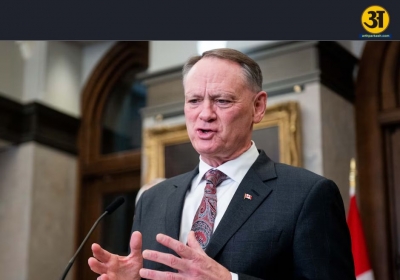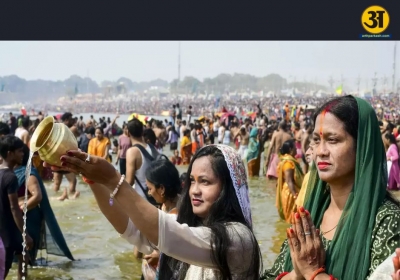
HC judge has sent hijab petitions to the CJ
HC judge has sent hijab petitions to the CJ and , hearing scheduled for today.
On Thursday, a full bench of the Karnataka high court will hear a batch of petitions challenging the state government's ban on hijab in schools and colleges, following a request from a single-judge bench that felt the "enormity" of the "constitutional questions" raised merited a larger judicial view.
After the judge of HC filed an order explaining his reasons for not proceeding with the hearing on his own, Chief Justice Ritu Raj Awasthi formed a bench consisting of himself, Justice Jaibunissa M Khazi, and Justice Krishna S Dixit.
"This topic was hotly debated yesterday by both sides for quite some time, and this judge benefited from it... "The court is of the considered judgement that the papers be sent to the honourable Chief Justice for consideration of whether a larger bench can be formed," Justice Dixit stated.
The judge noted that three high courts' judgements had been mentioned, together with more than a half-dozen apex court judgments, to demonstrate the intricacy of the concerns and aspects of personal law being challenged.
Allowing any student to wear clothes other than the required uniform would be considered preferential treatment and a breach of the dress code, according to the state administration. The government stated in its statement of objections to two petitions submitted by students at an Udupi institution that this would also be a breach of other students' right to equality, as guaranteed by Article 14 of the Constitution. The petitioners have been protesting since December because they are unable to attend classes while wearing hijab.
The applications were filed before the government issued an order requiring students to respect the clothing code on February 5.
In the Mohammed Zubair Corporal Vs Union of India and Others case, Advocate General Prabhuling K Navadgi pointed out in court on Wednesday that the Supreme Court has considered the relevance of uniform and its importance as a distinguishing feature.
"Wearing a different material or dress code than the institution's or the child's or student's uniform is not helpful to the institution's or the child's or student's growth. There are no restrictions on wearing whatever they choose outside of the classroom. Inside the classroom or on campus, no one has been treated unfairly. In the educational institution, discipline and decorum must be maintained "the government went on to say.
The state government further claimed that wearing hijab is not an essential religious practise, citing the Allahabad high court's judgement in the Ajmal Khan vs Election Commission of India case.
Sanjay Hegde, a senior counsel for the Udupi student petitioners, claimed the girls were only two months into their school year. "My hometown, Udupi, is the source of the issues. Is it possible to impose a uniform? What matters is that these students return to their colleges. In two months, no heaven will descend. There is no way a girl child can be denied education "he stated
"It doesn't matter to us whether pupils go to school or not; it doesn't matter whether a school's administrator allows us to sit in a class wearing hijab. The Karnataka Education Act makes no mention of uniforms. It has to do with curriculum. Is it possible, even if the state government has power, to completely reject certain children? 'No,' I would say."
Senior counsel Devadatt Kamat responded to the advocate general's proposal that the students visit the college development committee by saying that this would leave the students "at the mercy of some committee to protect their constitutional rights."
"In light of the foregoing, the register is directed to present the files to the Chief Justice as soon as possible, citing the urgency indicated in the case. Petitioners have the option of seeking interim relief until the chief justice makes a decision "In his order, Justice Dixit paves the way for the full bench's first hearing on Thursday at 2.30 p.m.
Meanwhile, Bengaluru City Police issued prohibitory orders within a 200-meter radius of all educational institutions in the city, citing violence sparked by the hijab controversy in other areas of the state. The ban orders will be in effect until midnight on February 22nd, according to police commissioner Kamal Pant.
At a cabinet meeting, Chief Minister Basavaraj Bommai assessed the situation sparked by the hijab row and agreed not to take any further action until the high court rules.
Also read : Hijab debate: Adjournment plea filed in Lower House





